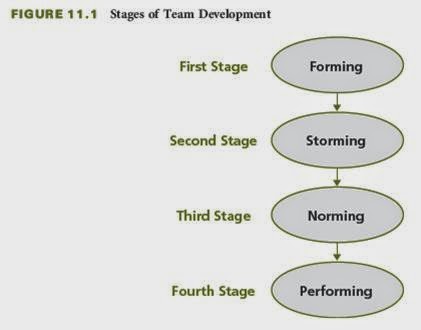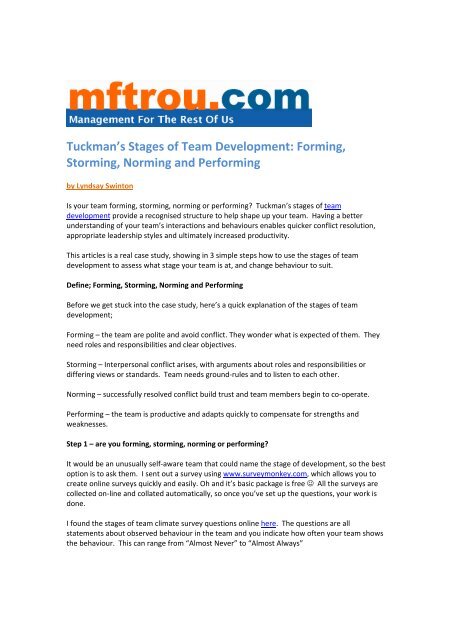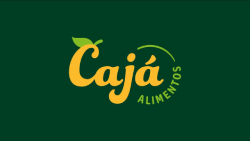Forming, Storming, Norming And Performing
Освойте # покерза 5 минут в день
janeiro 12, 2022Играть В Покер С Компьютером Бесплатно Без …
janeiro 12, 2022
This type of staff is the product of Matrix management method. Guest Post ActiveCollab invitations awesome storytellers to dive into subjects associated to productivity, project & team https://globalcloudteam.com/ management and Real Work. After watching this lesson, you need to have the ability to listing and summarize Bruce Tuckman’s five levels of group growth.
Once the group is reaching properly, you must goal to have as mild a contact as attainable. You will now have the ability to begin specializing in other targets and areas of work. Use psychometric indicators such stages of team development as Myers-Briggs and the Margerison-McCann Team Management Profile to help folks learn about different work kinds and strengths. Remain optimistic and agency within the face of challenges to your leadership, or to the staff’s goal.
You can’t look over their shoulders and be sure that everyone is doing their work. Ideally, your group is made up of reliable people https://www.luxoft.com/ that know and fulfill their responsibilities. With Toggl, staff members can track the work that they do.
(Although, it does make the stages simpler to recollect.) Each is aptly named and performs a significant half in building a high-functioning staff. Welcome to the Club and thanks for sharing in regards to the ‘re-forming’ stage of the cycle. It seems very logical to me that teams are repeatedly reforming as they modify to changes.
Top 10 – Project Management Apps
The norming stage is a time where group members turn into a cohesive unit. A sense of neighborhood is established, and the group remains focused on the group’s function and aim. The storming stage is the place conflict and competition are at its best as a result of group members really feel confident and start to deal with a number of the more important points surrounding the group. During the storming phase, all members have an elevated need for clarification before they are able to move on to the next stage. At its peak, the group strikes into the fourth stage of group improvement, often known as the performing stage.
As new duties arise, teams should experience a few conflicts. If you’ve already dealt with disagreement before, it will probably be easier to handle this time. But, as a result of this stage focuses extra on the people than on the work, your team probably won’t be very productive but.
And, if there are vital modifications, the group might go back until they handle via the change. Rather than compete in opposition https://globalcloudteam.com/four-stages-of-team-development-what-you-need-to-know/ to each other, they now assist one another work towards a common aim.
And, it requires working with group members who attempt to management all conversations and facilitating contributions from quieter members of the group. Teams experience each stage, but typically don’t full a stage before moving into the following stages of team development one. Then, they go back to earlier levels to assist progress needs in the later phases. With an outside facilitator, the group can categorical their ideas and opinions with out feeling unable to disagree with members.
What are the 4 types of teams?
A combination of solid leadership, communication, and access to good resources contribute to productive collaboration, but it all comes down to having people who understand each other and work well together. Not every team needs that one superstar player to excel.
The facilitator is ready to attract each particular person’s opinion and ideas whereas encouraging and mediating discussion. Outside facilitators take a look at the group’s behaviours and processes objectively and ensure dialogue stays on observe, members remain engaged, and that results are produced. With an outdoor facilitator, members really feel accomplished as a result of time is utilized effectively quite than being wasted resulting in a cohesive staff with improved collaboration abilities.
What is the meaning of Group Behaviour?
In the norming stage, consensus develops around who the leader or leaders are, and individual member’s roles. Interpersonal differences begin to be resolved, and a sense of cohesion and unity emerges. Team performance increases during this stage as members learn to cooperate and begin to focus on team goals.
Competence in all members is seen, permitting for a high degree of autonomy in decision making. Problem fixing, experimentation and testing possible options are high as group members are targeted on task completion and achievement. The total objective of the group through the performing stage is to finish their mission and fulfill their objective https://ru.wikipedia.org/wiki/EPAM_Systems although objective achievement. If powerful superhero and entrepreneur groups have taught us anything, it’s that working with others can increase your energy and success. Even if your group has two or three leaders, you possibly can’t all the time monitor your staff.
- Not every staff makes it to this level of staff improvement; some teams cease at Norming.
- Additional team improvement is required, so leaders stay involved to resolve conflicts as rapidly as attainable.
- At this point, the team chief begins transitioning some determination making to the group to encourage self-governance and independence.
- The high performing team functions with little oversight and members are extra interdependent.
- This stage seldom closes fully, however is mostly full when staff members settle for each other extra and learn how to work collectively for the nice of the project.
- It is the job of the team leader to assist see the group via these phases; to bring them to the purpose the place they’re working as successfully as possible toward a common aim.
A change of team member composition will mechanically put the group again into forming, as all get to know the brand new member and the brand new group member gets to know the group. All teams go through a process of growing and developing from a collection of individual contributors to a powerful group.
This is especially helpful if you have some individuals which are working remotely. Throwing a gaggle of talented individuals together doesn’t mean that they’ll type a great group. Hoping that your organization or project shall be a hit received’t make it happen. (Sadly, not a perfect rhyme.) Once a project ends, the team disbands. This phase is sometimes known as mourning as a result of members have grown close and really feel a loss now that the experience is over.

The constructions and processes that you’ve set up assist this nicely. Storming usually begins the place there’s a battle between group members’ pure working kinds. People may work in several methods for all sorts of reasons however, if differing working types trigger unexpected issues, they might turn into pissed off. So, if you’re on a team right now, guess where your staff is currently.
Performing Stage
Team members also start to make significant progress on the project. As the team agrees on team guidelines for working together, how they may share information and resolve staff battle, and what instruments and processes they’ll use, much less friction occurs and more will get carried out. The staff chief coaches some to be more assertive and others to be more effective listeners. Storming requires an adept team chief that facilitates the team quite than directs them. The leader ensures that staff members learn to hear to one another and respect totally different concepts and approaches.
Schedule regular reviews of where your group is, and regulate your habits and leadership method appropriately. Now consider what you should do to move towards the performing stage. Figure 1, below, will allow you to understand your position, and think stages of team development about how you can transfer the group ahead. It feels simple to be part of the staff at this stage, and individuals who be a part of or depart won’t disrupt performance. The group reaches the performing stage, when hard work leads, with out friction, to the achievement of the team’s aim.
Why do teams not go to Stage 4?
This stage marks the development of the team’s mission, values and goals. By establishing these agreed-upon norms, teams are able to set guidelines for appropriate and inappropriate behaviour. They also provide a sense of identity for the team, allowing members to feel aligned and connected to the goals of the group.
It may be difficult, nevertheless it could be very instructive to assist your project full successfully. Even on this stage, the group could revert again to a different stage. For instance, they might revert again to the “storming” stage if one of many members begins working independently. Or, the team might revert to the “forming” stage if a new member joins the team.
Performing
First you identify the stage of improvement that your staff is at. Then, you utilize strategies that move your team through to the subsequent stage in the group formation process. With focus and onerous work, you’ll shortly have a high-performing group.
The Team Building Directory
You can use Tuckman’s model to assist your staff reach the performing stage as shortly as potential. AdjourningTake the time to rejoice the staff’s achievements – you could work with some of your individuals once more, and this shall be much easier if people view previous experiences positively. PerformingDelegate duties and projects as far as you’ll be able to.
